Hemp Testing Timeline: When to Test at Every Stage of Harvest
In this post:
- Pre-planting tests
- Pre-harvest tests
- Post-extraction tests
- Post-production tests
- Why testing is important
- ACS's Certified Safe Testing Seal
It’s that time of year again–hemp harvest season. Do you know what you’re testing for (and when)?
Testing early and often is critical to producing high-quality, compliant hemp crops this harvest season. Sadly, if you wait until harvest to test for the first time, you risk losing the entire yield. Last year, more than 14% of Florida hemp harvests were destroyed due to poor growth performance and hot crops.
At ACS, we believe that should never happen. So we’ve created a simple 2021 hemp testing timeline from pre-planning to harvest and finally to post-production. Here we review when to test your hemp, what you should test for, and why.

Pre-Planting Hemp Laboratory Tests
ACS recommends:
- Soil
- Pesticides
- Heavy metals
Hemp is like a sponge, quickly soaking up all the pesticides and heavy metals in its path. So if you suspect there may be heavy metals in your soil, if you know the farmer prior used pesticides in your field, or if it’s possible that one of your neighboring farm’s pesticides traveled by wind to your plot, it’s critical to test your soil before planting.
The most harmful soil toxins include lead, cadmium, arsenic, and mercury, which can cause kidney failure, vomiting, and low blood pressure at high levels when ingested. That is not a risk you want to take. Your objective is to grow high-quality hemp that is clean, safe to use, viable to sell, and profitable.
Fortunately, if your soil tests positive for high levels of pesticides and heavy metals, you can treat it to inactivate the metal contamination and reduce the pH level.
Pre-Harvest Hemp Laboratory Tests
ACS recommends:
- THC potency
- Microbiology
- Pesticides
Soil analysis is a critical first step to guaranteeing successful hemp growth. The second step is to test your seedlings several weeks before you think they’re ready for harvest. Why?
1. Pre-harvest testing ensures your hemp is growing with the THC to CBD potency you expect.
You should always buy hemp genetics from a certified dealer that can back up its potency claims. Yet, no matter how reputable your seed dealer is, you can’t be sure about the final CBD and THC potency unless you test your hemp early and often. According to federal regulations, you must send samples to a state-designated laboratory within 30 days of harvest to determine your crop’s THC levels.
Consistent pre-harvest testing will help you determine when is the right time to ensure your hemp tests are below the legal limit. Pre-harvest laboratory testing also tells you when it’s time to harvest for optimal CBD and THC potency.
According to David Raab, CEO of Roseville Farms, if you’re growing five to ten acres of material, you should start testing around week five–twice per week. “Some people think every few weeks is fine, but then you won’t know the results until harvest. And by then, if you test above the THC limit, it’s too late to do anything about it,” said David.
2. Pre-harvest testing ensures your hemp is clean and free of pesticides and microbiology.
Contaminant testing is essential throughout the growth cycle to ensure your hemp is clean and ready for sale. At ACS, we recommend conducting at least one pesticide analysis before harvest because pesticide levels can change at any time due to external factors outside your control. Additionally, we recommend sending samples for microbiology testing.
Mildew, E.coli, Aerobic Bacteria, and Enterobacteriaceae are common microbiological contaminants that can destroy your harvest and pose serious health risks to consumers. They also proliferate on almost any type of surface–especially in moist and humid environments. If you don’t catch mold and mildew right away, it can spread like wildfire to leaves and buds, making them completely unusable.
Post-Harvest Hemp Laboratory Tests
ACS recommends:
- THC potency (and all cannabinoids)
- Terpenes
- Pesticides
- Heavy metals
- Microbiology
- Moisture
After harvest, your hemp can shift in potency depending on how you cut the plants and dry them. For that reason, we recommend testing for potency throughout the drying process.
We also recommend moisture testing during drying and storage. Why? Excess moisture is common and can lead to mold and mildew, which can render your hemp unviable for sale.
Finally, we recommend a full panel of safety tests, including pesticides and heavy metals, to be 100% sure your product didn’t retain unsafe levels during the growth process.
Full panel tests are critical for compliance and safety, but we believe hemp CBD farmers should take testing a step further to ensure maximum profits. That’s where terpenes testing comes into play.
Consumers buy hemp flower and products for therapeutic benefits, directly linked to the plant’s terpene content. Terpene profiles change from plant to plant, regardless of whether or not they grew from the same seed genetics. Terpenes analysis will allow you to market the product based on the full spectrum of healing compounds it contains.
Terpenes testing, along with a full safety panel, gives you the most significant number of options to market and sell your final product. Processors and wholesalers will be more likely to give you preferential treatment with a full panel + terpenes instead of potency tests alone.

Post-Extraction Hemp Laboratory Tests
ACS recommends:
- THC potency (and all cannabinoids)
- Terpenes
- Residual solvents
- Microbiology
- Heavy Metals
- Mycotoxins
Hemp extracts are wildly popular products, but the process of making them can pose contamination risks and alter the terpene/cannabinoid profile. That makes hemp extract testing more crucial than ever.
At ACS, we recommend testing hemp extracts for potency at a minimum. We also recommend terpenes testing so you can justify your product’s market value. Accuracy potency information is also critical for the end-user, who relies on those details to determine which products will deliver the best therapeutic results.
For health and safety reasons, you’ll need to test your hemp extract for residual solvents. Solvents, such as hydrocarbons, are a normal part of the extraction process.
However, high residual levels are illegal and dangerous. In addition to residual solvents analysis, we recommend that crude extractions have a full panel of safety tests. A full panel is the only way to prove your hemp extraction didn’t pick up any mold, mildew, heavy metals, or mycotoxins during processing.
Post-Production Hemp Laboratory Tests
ACS recommends:
- THC potency (and all cannabinoids)
- Terpenes
- Mycotoxins
- Microbiology
- Heavy metals
- Pesticides
At ACS, we recommend complete panel testing for all finished products, from hemp flower to oils to edibles and beverages. From pre-harvest to post-production, harmful materials can contaminate your product or packaging, putting your consumers’ health at risk. Wondering how this might occur?
- Packaging contamination: Vape pens and bottles, especially those manufactured overseas, have been shown to contain lead.
- Water contamination: Water used during production may be tainted and ultimately contaminate your product as a result.
- Storage issues: Excessive moisture can cause mold and mildew. Excessive heat can cause cannabinoid degradation.
Full panel testing along with terpenes ensures that any product–whether smoked, vaped, or eaten–is safe and full of the healing compounds your customers expect.
Many states require complete panel testing, including FL, MA, LA, TX, OR, and CO. But not every state has the same requirements. Regardless of mandates, consumers are increasingly more educated about contamination risks and false advertising. These customers expect hemp brands to deliver proof that their formulas are clean and accurately labeled with the correct potency information.
Why is Hemp Testing So Important?
Full panel safety tests, cannabinoid testing, and terpene testing protect you and your bottom line. These tests also offer your buyers and ultimately end-users peace of mind. Consistent laboratory testing from pre-planting to post-production is essential for multiple reasons:
- Helps magnify your profit margins
- Creates a timeline for when to send your samples for legal compliance tests
- Enables you to determine when and how to harvest
- Ensures your crop doesn’t grow hot (above the legal 0.3% THC threshold)
- Protects you from liability against third-party contaminants
- Protects consumers health and provides a positive therapeutic experience
How ACS’s Tested Safe Certified Seal Can Help Hemp Farmers, Extractors, and Manufacturers
ACS’s Tested Safe Certified Safety Seal, endorsed by the American Cannabinoids Council, is a physical symbol that your product passed the strictest testing guidelines in the country created by an award-winning medical-grade laboratory. The Safety Seal, which you can apply to your product packaging, website, and marketing materials, shows visual proof at a glance that consumers can trust your brand.
The Seal signifies that your hemp or cannabis product is:
- Backed by verified test results at an ISO/IEC 17025:2017 accredited, DEA-registered facility
- Free from contaminants, pesticides, and solvents
- Accurately labeled
- Safe to ingest

About ACS Laboratory
The Most Trusted Cannabis and Hemp Laboratory in the USA™, ACS Laboratory, has earned more Emerald Test Badges for accuracy testing than any other laboratory in the USA. ACS Laboratory is ISO/IEC 17025:2017 accredited, DEA licensed, and CLIA certified with the largest state-of-the-art facility in the Eastern USA. Compliant with the USDA’s rules for hemp testing, ACS is also approved by the Florida Department of Agriculture as a “Designated Compliance Laboratory” and deemed a “Certified Marijuana Testing Laboratory” by the Florida Department of Health.
Due to its success, ACS Laboratory has expanded to 20,000 sq. ft. and increased its reach to 49 states and four countries worldwide. Its facility utilizes industry-leading ultra-high-performance liquid chromatography-tandem mass spectrometry technology and proprietary protocols to ensure accurate detection. Beyond compliance, ACS is committed to innovation, which is why it tests for more cannabinoids than most labs in the country and continuously develops new protocols to analyze lesser-known contaminants.
Watch this video about ACS Laboratory, and read the blog for up-to-date information on cannabis science and lab testing for both the hemp and cannabis industries. For more information, visit acslabcannabis.com, or call (813) 578-8876.
Learn more about ACS’s Safety Seal Program in our recent press release.


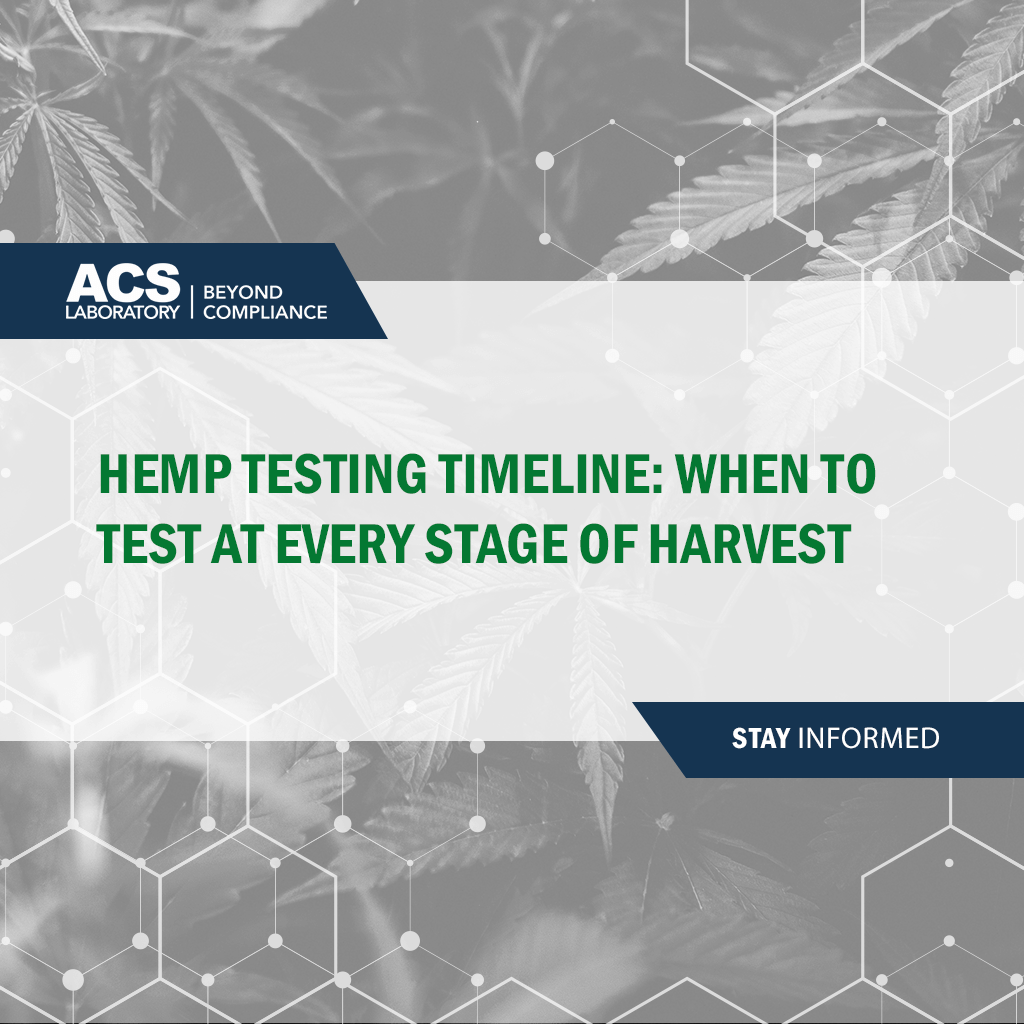
.jpg)
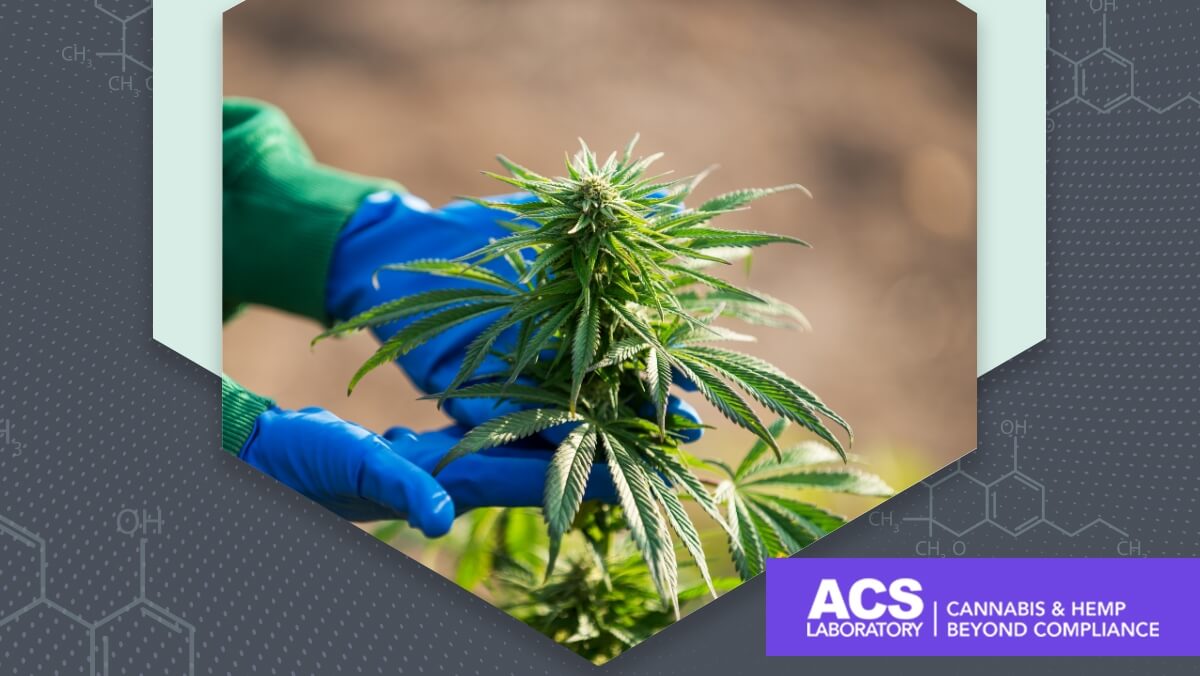
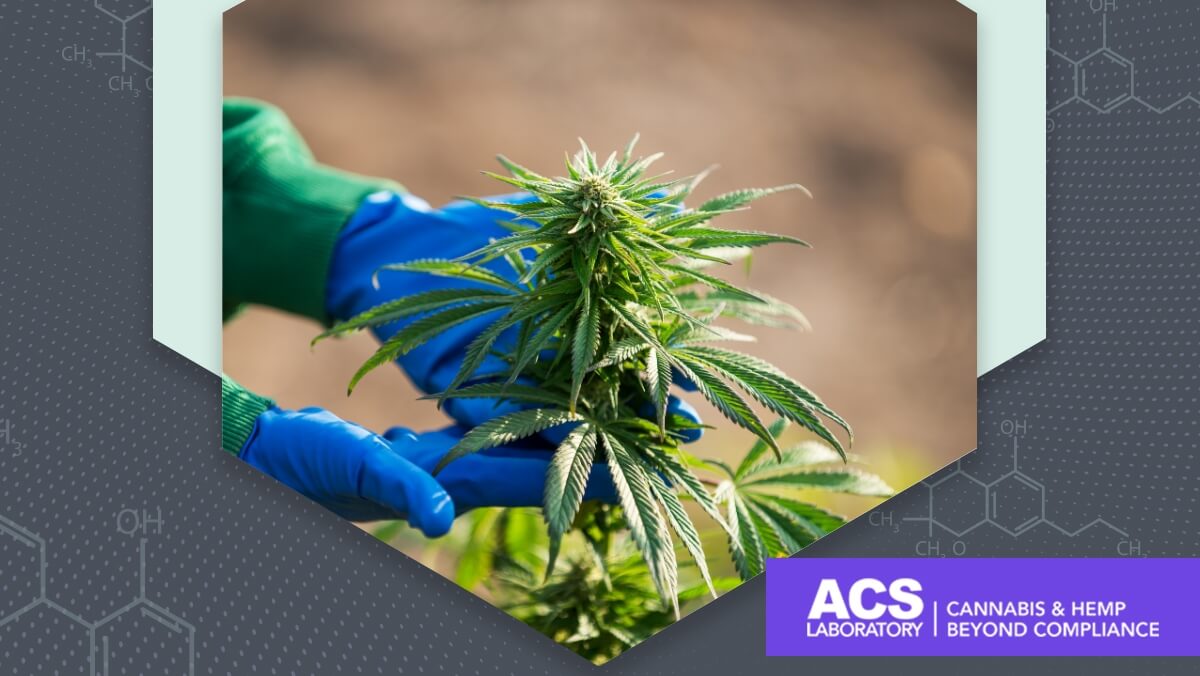
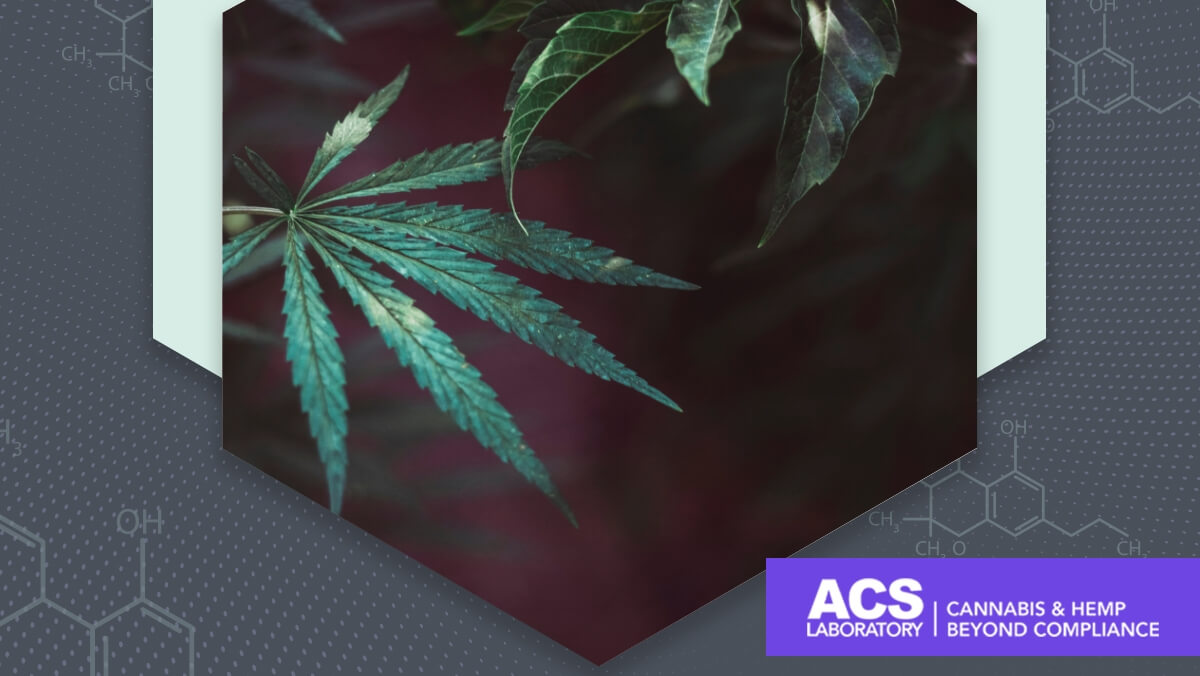
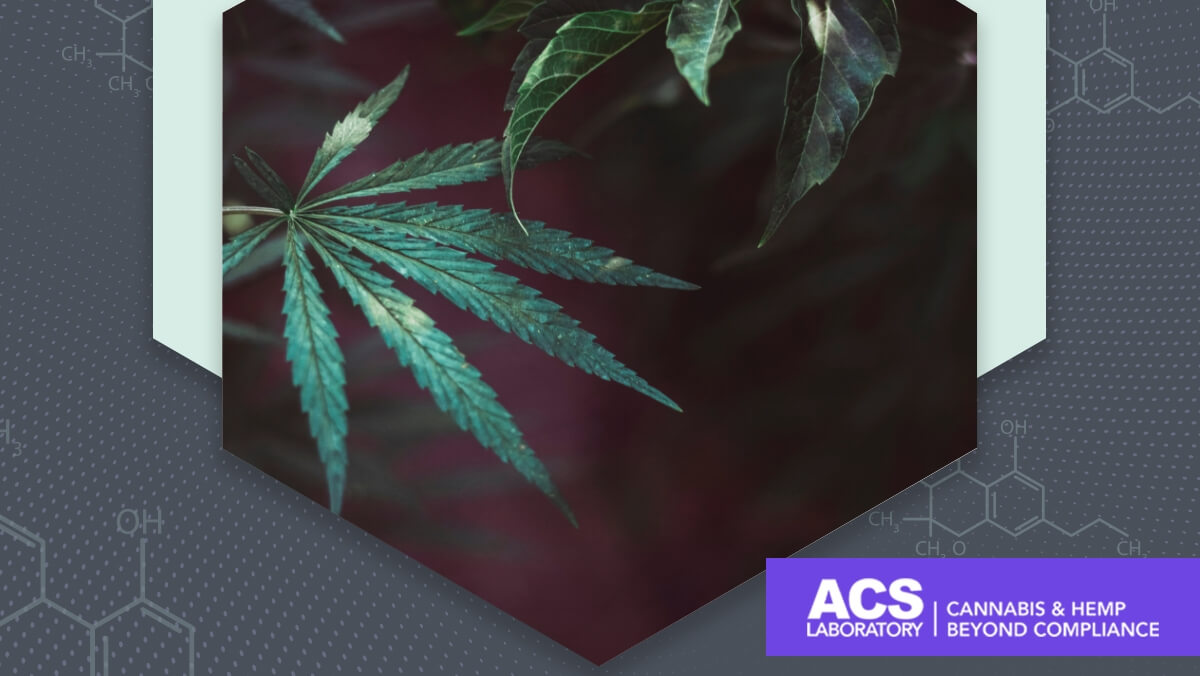

.png)
.png)
.png)
.png)
.png)